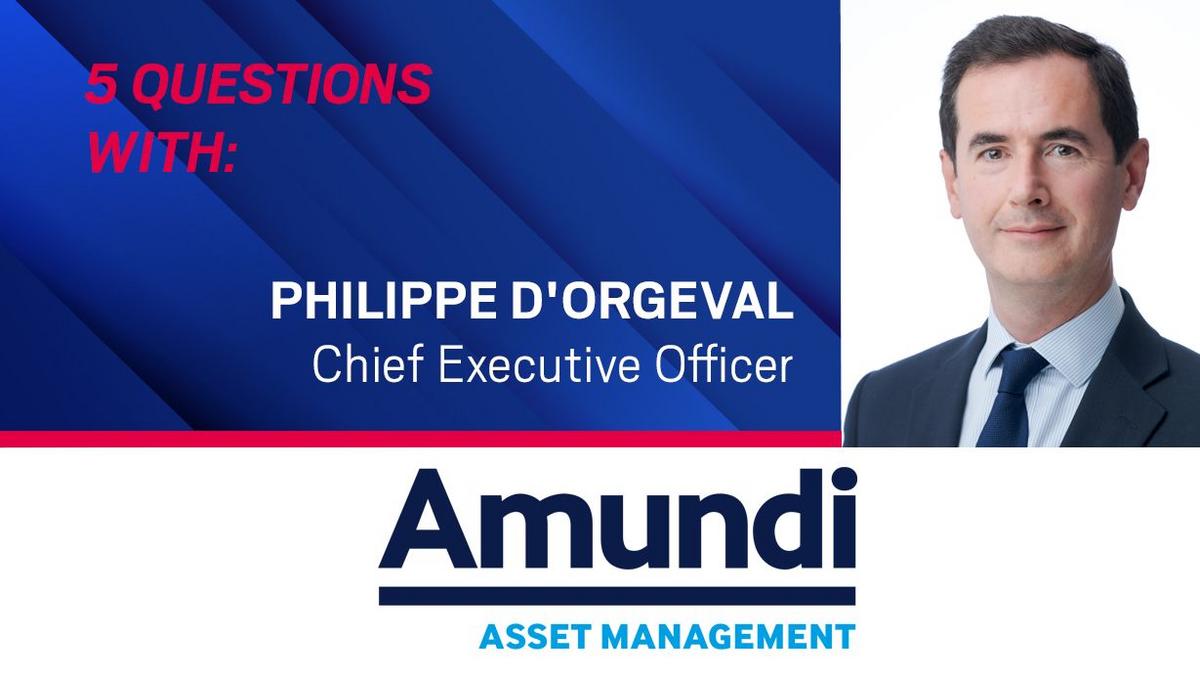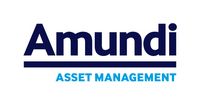Interview • Members
Five questions with Philippe d'Orgeval, CEO of Amundi UK

Meet Philippe d'Orgeval, our recently welcomed Patron Member and the CEO of Amundi UK. In this interview, Philippe shares insights about his diverse career journey and leadership principles. He discusses Amundi's commitment to sustainable investment and its integration of transparency and innovation while emphasising the importance of a positive attitude towards change and building trust in the workplace.
Philippe, your career path from Portfolio Manager at Rothschild Gestion to the current role as CEO of Amundi UK is quite impressive. Can you highlight a key lesson or turning point from your journey, especially in transitioning from roles like Head of Fund Research to Chief Risk Officer, and how these experiences influence your leadership at Amundi?
In my view, it’s not about a single key lesson, but rather a positive attitude towards change and relationships that has been instrumental as I moved across different roles. Embracing a continuous learning mindset, along with an appetite for new challenges and a positive outlook on change has been very formative for me. This proved invaluable during my transition from front office roles, like Chief Investment Officer, to a control position as Chief Risk Officer. This was pivotal in helping me navigate through financial market crises such as the aftermath of Lehman’s collapse.
Additionally, the importance of building trust in the workplace cannot be overstated. Trust serves as a catalyst for success in many ways. It’s closely tied to organisational culture and values, and at Amundi, our values of courage, entrepreneurship, team spirit and solidarity provide me with an excellent leadership compass.
These insights became especially valuable at Amundi when we transitioned to hybrid working during the pandemic, where earning the trust of my teams was key to adapting to an entirely new way of working. Trust empowers transformation and resilience.
In alignment with Amundi's sustainable investment vision, how do you integrate the values of transparency, responsibility, performance, and innovation into your responsibilities as a CEO?
At Amundi, our raison d’être is to be a trusted partner working every day in the interests of our clients and society. This goes hand in hand with being a responsible player in the asset management industry but also serving the needs of the real economy, whether that is being an important economic actor in supporting the energy transition, or helping our clients achieve their aims whatever they might be. To do that successfully, we need to embed transparency into every facet of our operations. As such, we say what we do and we do what we say.
In order to align our sustainable investment vision with how we operate as a company, Amundi has set internal alignment objectives for our senior management, in line with Amundi’s ESG commitments. Since 2022, Amundi has been integrating ESG & CSR-related KPIs into remuneration & performance structures across the company from the CEO to the 200 most senior executives, sales and portfolio managers. As a CEO, my role is to ensure that our mission is shared throughout the organisation, empowering staff to be actors of change. As such, we are also targeting by 2025 a 30% reduction in our employees’ GHG emissions on scope 1 and 2 as well as in business travel. And continuing with this aim of demanding of ourselves what we ask of the companies we invest in, we also devote a lot of time and resources to achieving diversity in our recruitment and retention of staff. We strongly believe that attracting, developing and retaining a base of diverse employees is essential to our success.
Amundi positions itself as the European leader in Asset Management. Could you share a specific achievement or success story that showcases the effectiveness of Amundi in delivering effective solutions to investors?
In order to be a leader in asset management, you need to be at the forefront of innovation. One of the ways in which we do this is by helping create new markets. For example, our London-based emerging markets team have been developing our partnership with the IFC, the World Bank’s investment arm. In 2021 we successfully launched the world’s largest targeted green bond fund focused on emerging markets, totalling nearly $2 billion. It aims to unlock capital flows for climate finance in developing countries. Not only does this offer investors worldwide with investment options to help developing countries achieve long-term sustainable growth, but this particular strategy is designed to stimulate the supply of green bonds in emerging markets with the ability to share expertise in climate finance, emerging markets, and green bond markets.
A second iteration of the fund with the IFC was also subsequently launched, addressing the dual challenges of inequality and climate change in emerging markets. Here we are channelling capital from institutional investors into anchor investments in sustainable bond issuances from corporates and financials in developing countries. This in turn will enable even more funding for such transactions, further strengthening the asset class and deploying greater resources in priority areas, such as climate and gender. Thanks to this, we will help expand the availability of other segments of the sustainable bond market, while spurring private investment into these markets.
Given Amundi's expertise in diverse investment strategies, from alpha-focused portfolios (fixed income, equities, multi-asset) to real assets, how does your company manage to stay innovative and adaptive in an ever-evolving financial landscape, ensuring success in these key market segments?
Amundi's ability to stay at the forefront of innovation is anchored in our continuous investment in research and development while staying close to our clients and helping them manage the challenges they face. As such, in 2022 we created the Amundi Investment Institute, a new division intended to deepen the strategic dialogue with our clients. We strengthened this business with two senior hires in London in geopolitics and macroeconomic policy, in response to the increasing complexification of today’s markets, characterised by higher for longer rates, rising geopolitical risk, and the rise of AI and technology. It’s part of our entrepreneurial spirit, one of the founding values of Amundi, to adapt to our clients’ needs and the changing environment.
Another key factor of our growth and success is our diversification. We are diversified by client type (100 million investors across segments), by geography (we are present in 35 countries), and by product, where we invest in serving our clients with solutions whatever the market context or their needs, such as private debt, emerging markets, bonds, and ETFs to name a few. Our success in key market segments is a product of this agile mindset, which equips us to navigate the complexities of today’s market environment and deliver strong performance for our clients.
From your perspective, what are the specific and current challenges in the asset management sector?
The asset management sector is currently facing a confluence of challenges, including the increasing demand for responsible investment options, the need for advanced technological integration, and the pressure of regulatory changes which are rising and evolving. Other structural challenges include the pressure on costs and margins, and the changing market regime, which calls for increasingly sophisticated advice and proximity with our clients.
Amundi is the leading European asset manager. They offer savings and investment solutions through a comprehensive range of expertise in both active and passive management, encompassing traditional and real assets, within dedicated and integrated investment platforms. Additionally, they provide advisory services and technological tools.
